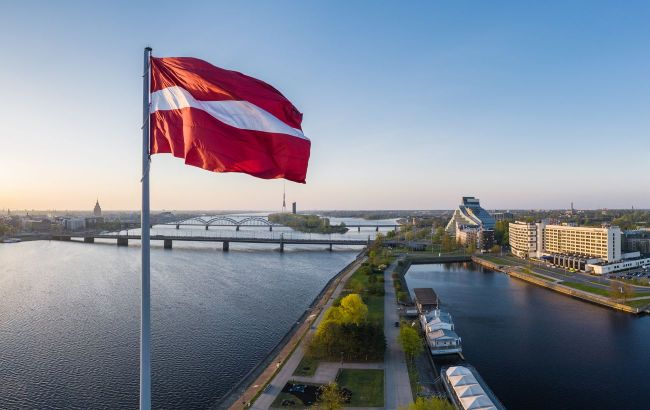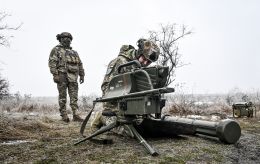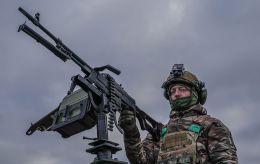Latvia predicts rising threats from Russia in 2025
 Photo: Latvia predicts an increase in threats from Russia in 2025 (Getty Images)
Photo: Latvia predicts an increase in threats from Russia in 2025 (Getty Images)
Malicious Russian activity in Latvia could become more diverse in 2025. Among the country's security challenges, the risk of sabotage inspired by Russian intelligence services will be the main one, stated Latvia's State Security Service (VDD), according to Delfi.
Russia will undoubtedly continue its attempts to influence socio-political processes in Latvia in 2025, including through aggressive methods. Organized malicious actions by Russia are expected to become more varied.
The report indicates that Russian intelligence services will maintain an active presence against Latvia in 2025, with the same level of aggressiveness.
The primary security challenge for Latvia will be the risk of sabotage inspired by Russian intelligence. As a component of hybrid warfare, such sabotage could be used to destabilize the country's internal security, damage critical infrastructure, and create a sense of insecurity within society.
The VDD emphasized that the growing risks are linked to a shift in the Kremlin's tactics from framing the invasion of Ukraine as a local war to portraying it as a geopolitical conflict with NATO.
At the same time, traditional espionage activities, such as recruiting Latvians to obtain classified information, will remain a core focus of Russian intelligence operations.
Russian intelligence will continue to prioritize information related to military and civil defense, energy and transit policies, events with propaganda potential, and Latvia’s stance on international relations concerning Kremlin policies.
Additionally, the VDD noted that efforts will also be made to recruit individuals who can influence decision-making processes in Russia’s interests.
The threat to NATO posed by Russia
Recently, the head of Germany's Federal Intelligence Service (BND), Bruno Kahl, stated that Russia could launch an attack on NATO territory in the coming years.
However, he clarified that this would not likely be a full-scale war. Instead, Moscow might carry out a limited operation. According to Kahl, such an operation could involve an invasion of Norway's Arctic island of Svalbard, aimed at "mopping up the territory." The Baltic states are also considered at risk.
German Defense Minister Boris Pistorius noted that, given the expansion of Russia’s military, there is a theoretical possibility that Russia could attempt to attack NATO countries between 2029 and 2030.
At the same time, Latvian Foreign Minister Baiba Braže believes that Russia is unlikely to invade a NATO country at the moment, as it remains exhausted by its full-scale war against Ukraine.

